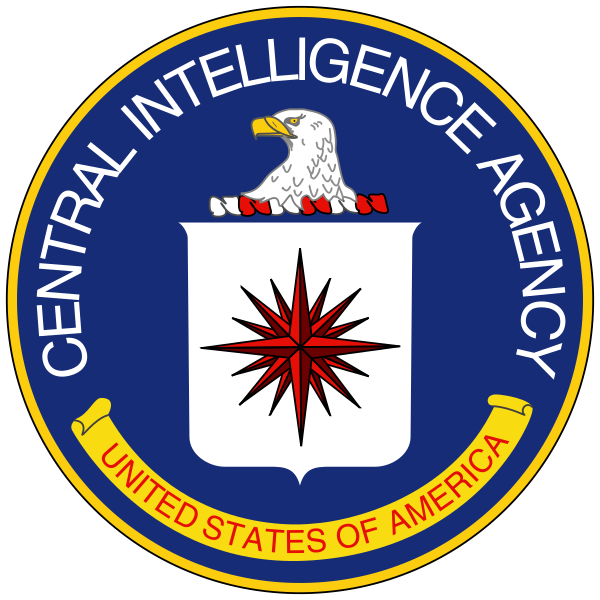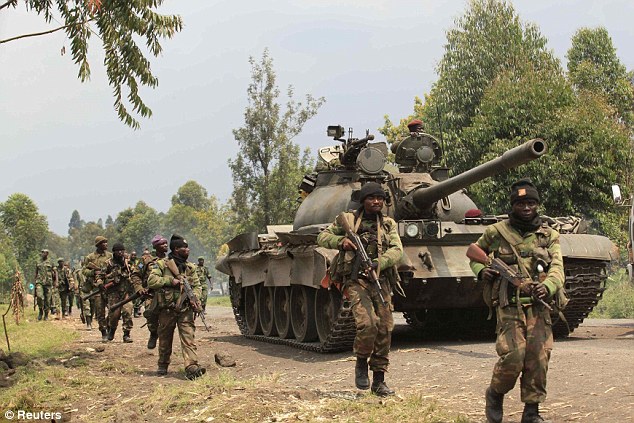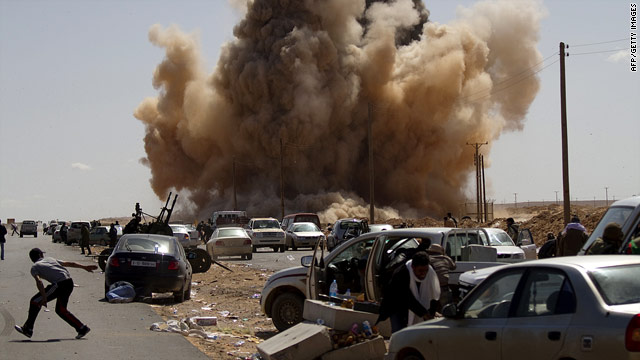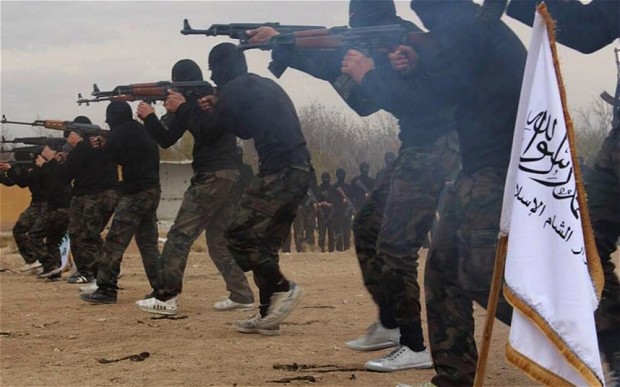March, 1990: Soviet policies of perestroika and glasnost cause upheaval in many Eastern Bloc states: in East Germany, a political and civil clash occurs between parties favorable to a reunification with the West against the hardline, pro-Soviet elements. The hardline socialist SED (Sozialistische Einheitspartei Deutschlands), supported by STASI, East Germany's secret service, comes out on top, leading to diplomatic crisis with West Germany and the end of any reunification plans.
August, 1990: the US and other NATO countries respond to Iraq's invasion of Kuwait with Operation Desert Shield, deploying a vast arsenal of troops in Saudi Arabia: this will be the prelude phase of the Gulf War.
October, 1990: the Rwandan Civil War begins as the RPF (Front Patriotique Rwandais - FPR) attacks the French-backed Rwandan government. The war quickly evolves into an ethnic clash between the Hutu and the Tutsi peoples, each attempting to genocide the other; both sides employ PMCs, and the war creates a severe refugee crisis.
December, 1990: the crisis in Germany aggravates itself as the Eastern government responds to Western threats and protests by installing a military cordon around West Berlin, effectively sieging the city; later, East German tanks roll into the city. West Germany and NATO respond by amassing forces at the German inner border and by issuing an ultimatum to the Soviet Union and East Germany demanding their forces to be retired from West Berlin; the world is on the verge of nuclear war. The UN steps into the situation by enforcing a resolution creating a demilitarized zone that runs along the German inner border, with various PMCs charged with patrolling it. The crisis is momentarily averted.
January, 1991: the Gulf War enters its second phase as Operation Desert Storm is launched by NATO, thus beginning the bombing and invasion of Iraq.
March, 1991: as Croatia attempts to secede from Yugoslavia, ethnic clashes erupt in the whole Western Balkans between Serbs and Croats. NATO help is given to Croatia, while the Soviet Union steps in to aid the Serbian side.
August, 1991: Soviet president Mikhail Gorbacev is deposed in a coup led by hardline members of the CPSU (Коммунистическая партия Советского Союза, КПСС), helped by KGB elements. He is replaced by former prime minister Valentin Pavlov: under the new government, policies of glasnost and perestroika are immediately repelled, and a new wave of authoritarianism takes hold in the USSR and its satellite states, as a program of centralist and repressive reforms is rapidly undertaken, as well as new investments into modernization of the Soviet military-industrial complex.
April, 1992: the situation in the Western Balkans evolve into a three way conflict between Serbs, Bosnians and Croats; the UN enforces limited peacekeeping areas, but it is too late to avoid the war from spiraling out of control, creating serious humanitarian crisis.
June, 1992: following Soviet withdrawal from the region, situation in Afghanistan collapses into chaos, as numerous Islamist factions rebel against the secular Afghani government.
December, 1992: UN peacekeepers intervene massively in Somalia in the attempt to pacify the wartorn country, which had been involved in civil war for five years; however, UN efforts were only partially successful.
February, 1993: following a period of political unrest, Italy begins diplomatic talks to leave NATO, moving closer to the Eastern Bloc; two momths later, the country independently intervenes in the Western Balkans, helping the Serbian side against the Croatian and Slovenian forces.
October, 1993: also thanks to actions by PMCs, the ethnic war between the Hutu and the Tutsi spreads from Rwanda to Burundi, engulfing the country in civil war and worsening the already deep humanitarian crisi of the region.
January, 1994: Cygnus Military Solutions is formed in Cardiff, UK. Most of the initial personnel is made up of former soldiers of Commomwealth countries and veteran mercenaries who operated in Africa.
March, 1994: ethnic conflicts begin in South Africa between the Bophutatswana black-ruled province and the Afrikaner pro-white movements Afrikaner Volksfront and AWB (Afrikaner Weerstandsbeweging, Afrikaner Resistance Movement); the fighting spreads to the whole nation, causing open hostility between pro-black and pro-white groups, with PMCs employed by both sides.
May, 1994: military conflict erupts between rival Kurdish factions in Iraq, mainly the pro-Iraqi KDP (Partiya Demokrat a Kurdistanê - PDK), and the anti-Iraqi PUK (Yekêtiy Niştîmaniy Kurdistan -YNK); both sides employ PMCs while major powers await before choosing which side to support.
June, 1994: civil war begins in Yemen between the US-backed central government and the Soviet-backed DRY ( جمهورية اليمن الديمقراطية, Jumhūrīyat al-Yaman ad-Dīmuqrātīyah). This is also the first mass deployment for Cygnus Military Solutions, employed by the central Yemeni government to protect its oil fields and launch raids into rebel-held territory.
February, 1996: a Chinese-backed Maoist insurgency begins in Nepal, led by the CPN; the war drags on for years as both sides entrench in the mountains and wage guerrilla warfare on the other.
September, 1996: Taliban forces capture the Afghanistani capital of Kabul. The new Islamist government proceeds to take control of the country undertaking systematic massacres and other atrocities against civilians.
October, 1996: Rwanda and allied countries and insurgent groups in Zaire begin a military campaign to overthrow the dictator of Zaire, Mobutu Sese Seko. The war drags on for months as both sides employ vast PMC forces.
March, 1998: a NATO-supported revolt, lead by the KLA (Ushtria Çlirimtare e Kosovës — UÇK) begins in Kosovo, in southern Yugoslavia, as the Western bloc seeks to accelerate the dissolution of Yugoslavian FR by stirring ethnic conflicts between Serbs and Albanians; meanwhile the USSR and its allies keep indirectly supporting the pro-Serbian forces.
May, 1998: Eritrean forces advance into Ethiopia, thus initiating the Ethiopian-Eritrean war. Attempts from the UN to pacify the situation are ineffective, until a massive peacekeeping force is sent to secure much of the border between the two countries.
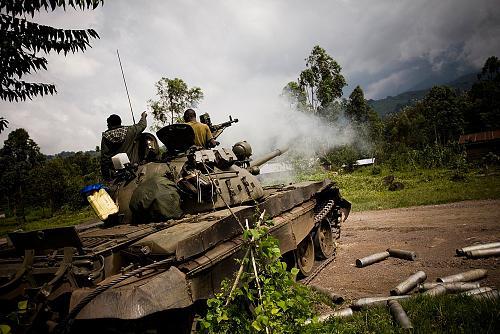
August, 1998: what would become known as the Great African War begins as a continuation of the ethnic conflicts between the Hutu and the Tutsi that had taken place in the previous years, as the now Tutsi-dominated Rwanda, together with other African countries, financed, directed and armed rebel groups against the Hutu-friendly government of Congo. The conflict rapidly becomes a patchwork of regional guerrillas and proxy wars spreading across much of Central Africa, with numerous PMCs involved (including Cygnus, employed by the Ugandan government against the militias of the LRA - Lord's Resistance Army); all parties in the war engage in war crimes such as ethnic cleansings, mass employment of child soldiers, and mass rapes, and attempts from the UN to intervene are made mostly vain by the sheer complexity of the political and military situation. The humanitarian crisis that ensued was unprecedented, creating the first mass wave of refugees headed for Europe.
September, 2000: a particularly heated riot sparks the beginning of the Second Intifada in Israel, with numerous Arab countries indirectly helping the Palestinian rebel groups.
September, 2001: four coordinated terrorist attacks orchestrated by Islamist group al-Qaeda take place in the US, striking the Pentagon and the World Trade Center. The gravity of the attack is unprecedented.
October, 2001: responding to the 9/11 attacks, the US leads an invasion of Afghanistan, with the intent to overthrow the Taliban regime which had harbored al-Qaeda. The operation is a partial success: a new Afghanistani government is estabilished, but the Talibans still hold power over numerous areas of the country, from which they wage guerrilla warfare and terrorist actions against the US forces.
December, 2001: the five major PMCs in the world sign the Auckland Charter, leading to the creation of the Peace Sentinels Networ. In less then a year, more than 95% of the world's PMCs will sign the document as well, becoming part of PSN.
January, 2002: as a follow-up to the invasion of Afghanistan, the US lanches a military campaign in the Philippines, aimed at eradicating pro-Taliban Islamist groups from the archipelago, as well as various communist insurgent forces, such as the NPA (Bagong Hukbong Bayan - BHB); in response, the USSR and China begin arming and training the communist militias.
February, 2003: violent ethnic clashes begin to take place in Sudan between the non-Arab populations of Darfur, spearheaded by the US-supported DLF (Darfur Liberation Front) and the pro-Arab central government, aided by the USSR and China.
March, 2003: the US and its allies launch an invasion of Iraq, based on the assumption that the country possesses weapons of mass destructions. Although the campaign rapidly topples the Ba'athist Iraqi regime, the war drags on for a long time as numerous insurgent groups arise in the region, with the USSR supporting some of them and covertly employing PMCs to sabotage US and NATO operations in the region; this situation creates the first severe refugee crisis of the 21st century in the Middle East.
March, 2004: a mass Islamist insurgency takes place in Pakistan, threatening to topple the existing government; the US intervenes in order to stabilize the situation.
November, 2006: Mexico falls into chaos as full-blown civil wars take place between drug cartels, USSR-backed communist insurgents, and the central government. The US intervenes in many occasioms, but the situation devolves in a severe humanitarian crisis, mostly because of the violent actions taken by drug cartels against civilians.
December, 2006: the situation in Somalia is worsened by a systematic attack by Islamist forces attempting to take over the country; the UN no longer has resources to intervene in a significant way. Another mass wave of refugees from the Horn of Africa moves toward Europe.
February, 2007: the US and various African countries launch an offensive against Islamist groups in Western Africa and the Maghreb. In response, the groups bunker down and begin to wage a tenacious guerrilla as well as numerous terrorist acts.
December, 2008: Israel launches a massive attack against the Palestinian-held Gaza Strip, resulting in many civilian deaths. This act is met with condemnation especially from the Eastern Bloc, causing the USSR to grow closer to the Palestinian movements.
January, 2009: in a last attempt to pacify the country, the UN stages a massive military intervention in Somalia, against the numerous Islamist groups rampant in the region, mainly al-Qaeda and it affiliatd group al-Shabaab. The attack, while supported by many African countries, is only partially successful, mainly because of the vast support the Islamists have from local Somali warlords, as well as poor coordination between UN and African countries.
April, 2009: the USSR begins a new policy of renewed efforts in taking control of the Middle East, starting with supporting a Ba'athist, pro-Soviet insurgency in southern Yemen, which rapidly takes hold of most of the country; both the UN and the Western powers are too busy on other front to intervene significantly.
July, 2009: a new wave of Islamist attacks take place in Africa as Boko Haram, one of the terrorist groups targeted in 2007, begins a massive offensive against Nigeria and other countries of the region; rapidly, the war creates a severe refugee crisis.
November, 2010: the UN intervenes in the Ivory Coast following repeated clashes between different branches of the government and the armed forces leading to civil war; numerous PMCs are employed by both sides, leading to a war tha destabilizes the whole region, with USSR agents seizing the opportunity to finance socialist groups in Western Africa.
February, 2011: a NATO-supported revolt begins against Lybian pro-Ba'athist dictator Muammar Gaddafi. As the USSR openly condemns Western involvment in the war, the Eastern Bloc begins to openly support Ba'athist regimes in all the Middle East, sending troops and men in Lybia to help Gaddafi. This creates a new atmosphere of tension between the East and the West; also, the chaotic situation in the key country of Lybia causes another mass wave of refugees to pour in into Europe, causing the assistance networks of many European countries to collapse under the pressure. Project HAVEN is initiated in response.
March, 2011: as the US seeks to completely eradicate Ba'athism from the Middle East, a revolt is staged in Syria, attempting to overthrow President Bashar al-Assad. The situation rapidly turns into a multi-sided civil war: as the USSR rapidly deploys troops en masse to aid Assad against the rebels, numerous Islamist groups and militias take hold of vast territories; among them, are the al-Qaeda-affiliated militia al-Nusra, as well as what would become the new most prominent group in Islamic terrorism, ISIL (الدولة الإسلامية, ad-Dawlah al-Islāmiyah). Meanwhile, Kurdish militias, also supported by the USSR, take up arms against the Islamist and the rebels.
December, 2011: following the withdrawal of US troops from Iraq, the country rapidly plunges into civil war as a four-way conflict erupts between the US-supported government, USSR-supported Ba'athist groups, Iran-supported Shi'a militias, and Islamist groups, spearheaded by ISIL. The massive refugee crisis created by the Syrian and Iraqi wars is the first true test of HAVEN-1's effectiveness.
March, 2012: after a revolt in the DR Congo, a chain reaction also fueled by various PMCs actively seeking to prolong the conflicts in Africa plunges much of Central and Western Africa into a series of proxy wars and ethnic clashes: countries mainly involved are the DR Congo, the Central African Republic, Sudan, South Sudan, Mali, and Mozambique.
July, 2013: HAVEN-1 is overtaken by refugees, leading to the creation of Haolam Haba.
November, 2013: as geopolitical world tension is on the rise, the EU passes a resolution that allows the formation of a Joint European Army, led directly by the EU. The US views this development with suspicion, but the EU begins stockpiling guns and equipment to be used by the new army.
January, 2014: the Iraqi conflict enters a new, more violent phase as ISIL captures the cities of Fallujah and Mosul; the USSR deploys troops to halt ISIL's advance and to covertly support Ba'athist and Kurdish factions against the Iraqi government, despite Western protests. Haolam Haba troops are empoyed as mercenaries by numerous factions involved in the conflict.
July, 2014: tensions escalate in the Middle East as Israel launches a mass offensive against the Gaza Strip. The USSR accuses Israel of war crimes against Palestinian civilians; in turn, Israel accuses the USSR of arming Hamas and other Palestinian factions.
January, 2015: following political repeated political and economical disagreements and discussion between its member states (foremostly the UK, France and West Germany), the European union is dissolved. The stockpiles of weapons and vehicles meant to be used by the Joint European Army are divided up among former member states and, more prominently, sold into the legal and illegal weapon markets, causing a flood of European weaponry among PMCs and irregular militias worldwide.
December, 2016: Operation Dog Shelter is launched.




